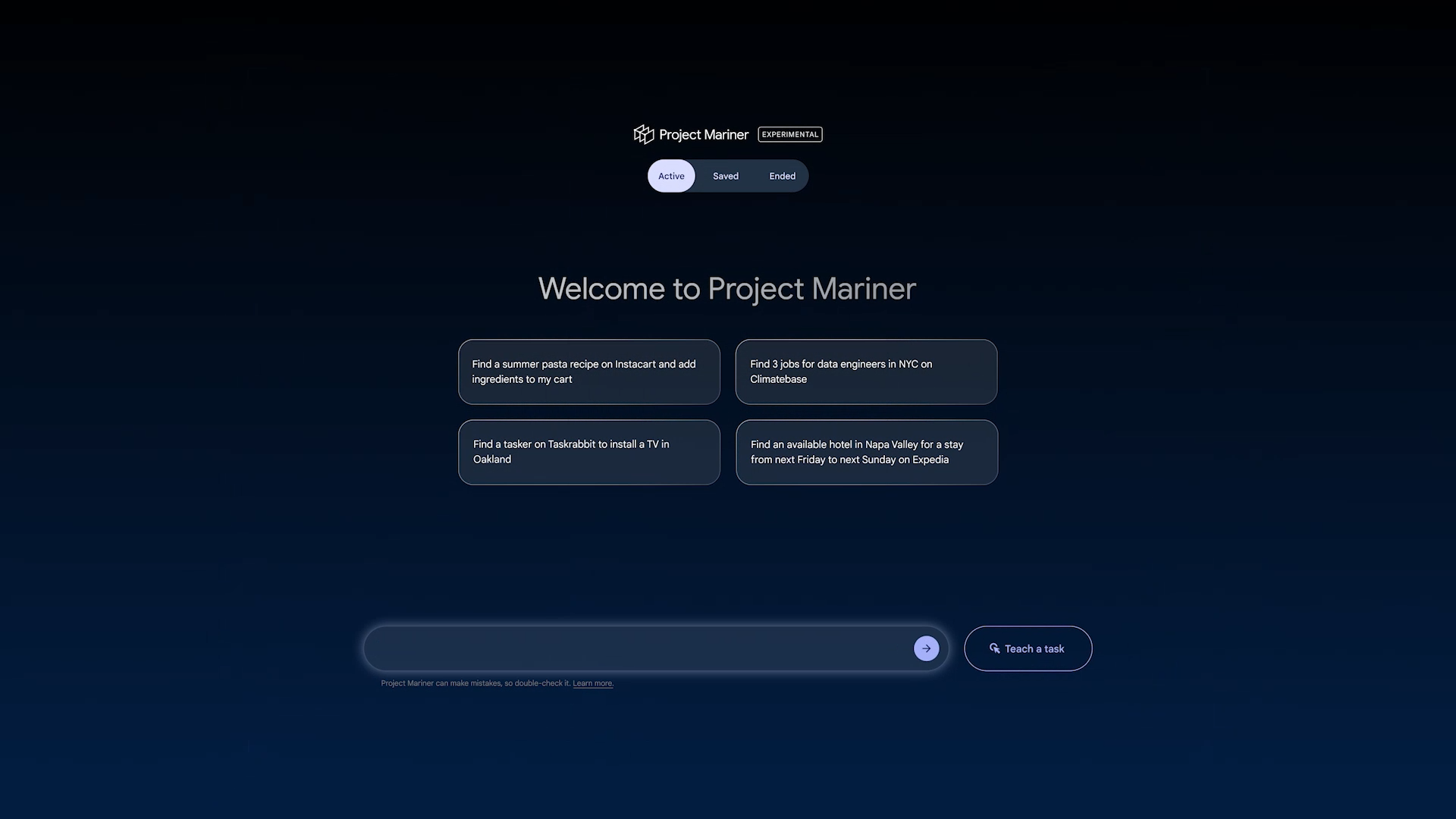Imagine having an AI-driven assistant right inside your browser, ready to help you navigate the web, automate searches, or even book your next trip. That’s the promise behind Google’s Project Mariner, which is now available to a wider audience of Ultra plan subscribers.
While this move hints at a future where browsing and productivity blend seamlessly, current users are finding both promise and hurdles in Mariner’s early days.

Introducing Project Mariner: Google’s Agentic Browser Assistant
Project Mariner is Google’s latest experiment in AI-powered productivity, delivered as a Chrome extension through Google Labs. Designed as an agentic browser assistant, Mariner interacts directly with your open tabs to retrieve, manipulate, and organize information.
Whether you’re searching for a restaurant, managing multiple tasks, or conducting research, Mariner aims to make the process smarter and easier.
Core Features That Set Mariner Apart
- Persistent Chat Bar: This always-available hub lets you communicate with Mariner in real-time, keeping tasks and conversations organized within your browsing workflow.
- Permission Requests: Every time Mariner needs access to sensitive data or personal information, it asks for explicit approval, ensuring user privacy and control are front and center.
- Manual Oversight: Frequent prompts for permissions mean users must closely supervise Mariner’s actions—a design choice that emphasizes security but can slow things down.
- Customizable Settings: Manage how much data Mariner can access, including toggling screenshot storage and session preferences to fit your comfort level.
- Gallery and Demos: Built-in workflows and demo projects help users quickly understand and unlock Mariner’s full potential.
User Feedback: Balancing Innovation and Usability
Ultra subscribers have been the first to try Mariner’s expanded capabilities, but the experience isn’t flawless. Many testers appreciate Google’s commitment to privacy but feel the constant need for manual supervision makes Mariner less efficient for everyday use.
For routine tasks like web searches, the process can feel unnecessarily slow compared to traditional browsing or competing AI agents such as Operator.
It’s important to note that Mariner is just one of several exclusive features for Ultra subscribers. Others include advanced tools like the Flow editor and enhanced video generation, which complement but don’t directly connect to Mariner’s functionality.
Limited Availability and Future Prospects
Currently, Mariner’s reach stops at Ultra-tier users in supported regions, with no official timeline for expansion to Pro accounts or the broader public. Google hasn’t addressed concerns over the agent’s speed or the abundance of user prompts, signaling that Mariner is still very much in its experimental phase.
The company’s cautious rollout suggests an ongoing commitment to refining both privacy protections and automation before a wider launch.
Takeaway: A Glimpse Into Google’s AI Vision
Project Mariner’s broader availability underscores Google’s push to lead in AI-powered productivity tools. Yet, its current limitations, particularly around manual permissions, highlight the challenges of merging autonomy with privacy.
As Google gathers feedback and iterates on the product, Mariner could evolve into a game-changing assistant for all users. For now, Ultra subscribers get an exclusive look at what the future of web browsing might hold.

Google Opens Project Mariner to More Ultra Subscribers: What You Need to Know